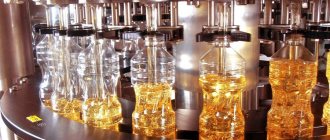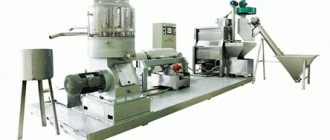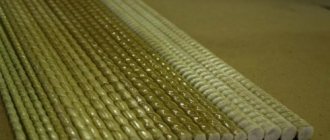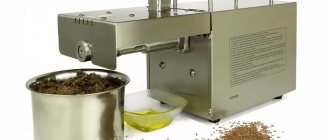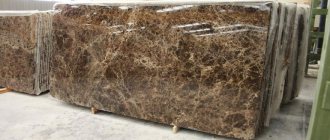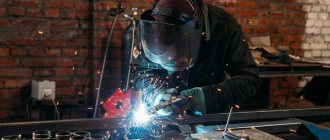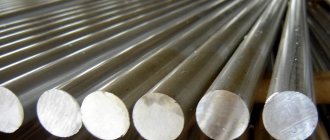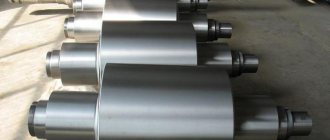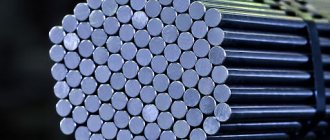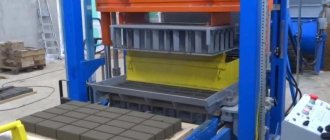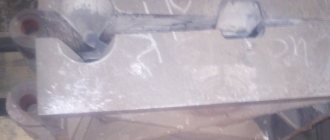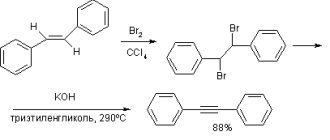Sunflower is the most common type of vegetable oil in Russia, used in cooking, medicine, cosmetology and other fields. 85% of Russians regularly consume vegetable oil. Demand for it is consistently high and continues to grow.
It is produced from sunflower seeds - a profitable idea that can generate high income. In this article we will tell you in more detail how to properly organize your business and get maximum profit. The reader will also familiarize himself with calculations of the payback of the business.
1. Brief market analysis 2. Consumption of vegetable oil in the country 3. Methods for producing different types of oil 4. Scope of application 5. What is needed to open an enterprise 6. Documents 7. Technologies for the production of vegetable oil 8. Premises 9. Raw materials 10. Equipment for production vegetable oil 11. Personnel 12. Marketing and sales 13. Sunflower oil production as a business: profitability and payback
Brief market analysis
Sunflower oil is one of the popular products on the Russian market of oil and fat products. Among other oils, it occupies the maximum share - 86.8%.
Entrepreneurs who want to start producing and selling sunflower oil need to know about the main trends in the industry, which is highly competitive, capacious and saturated.
Enterprises operating on the market are the leaders of the country's agro-industrial complex. More than a dozen large manufacturers and wholesale companies dominate the market. The current situation can be called oligopolistic. To take market share and get your customers, you will have to make great efforts.
The quality of manufactured products plays a very high role
Small businesses are characterized by so-called march production, which can occur even if there is only one bag of seeds available. This type of production is also called preliminary oil removal. This scheme is common for those entrepreneurs who have just started their activities.
The processing of mint has the greatest impact on the quality of products, because in the modern world people are concerned not only with the taste of the product, but also with its quality. Many have long understood that light oils are of better quality, and dark oils are harmful, since they contain high levels of carcinogens.
If the temperature in the frying pan is more than one hundred and twenty degrees, essential nutrients including vitamin E will be completely destroyed. Therefore, a sunflower oil filter plays a very important role. Much will depend on his choice.
Vegetable oil consumption in the country
There is some potential for market growth. The buyer in the country is satisfied, for the most part, with the Russian product, the share of which is 83.5%.
Table 1. How much vegetable oil was consumed in 2015-2018?
| Year | Consumption indicator, thousand tons |
| 2018 | 6431 |
| 2017 | 6273 |
| 2016 | 5717 |
| 2015 | 5425 |
A noticeable increase occurred in 2022 due to the large harvest of oilseed crops in 2016.
According to the base forecast scenario, consumption will continue to grow by 2% every year and reach 7,782 thousand tons in 2025.
The market has not exhausted its potential, and this provides excellent opportunities for entrepreneurs to start a new plant.
Methods for producing different types of oil
The production process is divided into several technological stages:
- Cleaning and processing of seed mass. Separators and aspirators are used. Depending on the processing method, the following processes are performed:
- sifting through a sieve;
- blowing the mass with an air flow;
- ferromagnetic separation.
- Preparing the mass for extraction. Raw materials can be extracted only after seed processing. Using vegetable oil production equipment, they are conditioned and hulled/husked. Valuable kernels are separated from the shell and crushed.
- Oil is extracted from the prepared mass. Use one of 3 methods: pressing, centrifugation, extraction. Extraction is the most economical way to obtain a high quality product.
- If necessary, the oil is refined (cleansed from impurities).
- The product is bottled, packaged and labeled.
What needs to be done with the oil before selling it?
It is recommended to pre-cool the oil obtained by pressing to approximately sixty degrees. If this is not done, it will begin to absorb moisture and oxygen. Accordingly, the quality will deteriorate.
After pressing, the oil is processed. The first two stages of its processing are refining. The oil is refined using various impurities and wax. There are two purification options: the first is sedimentation, the second is filtration. The first method, according to some experts, is the best. The oil settles at an ambient temperature of twenty degrees for seven days.
Scope of application
The oil is widely used in cooking. It is also needed:
- for food preservation (meat, vegetables, fruits);
- for creating paints and varnishes (drying oils, paints);
- When does soap making take place?
- creation of medical and cosmetic products (creams, ointments, lotions, lipsticks).
In these cases, you cannot do without refined oil - that is, purified from the pronounced aromas of sunflower. Therefore, it is better to purchase equipment for refining. The likelihood of purchasing refined sunflower oil is higher, since the scope of application is wider.
The production of refined sunflower oil itself is waste-free, because sunflower processed products can also be sold. Cake is required on livestock farms as biofuel. Miscella is needed to create paints and varnishes, husks are needed to create fuel briquettes.
Current expenses of the enterprise and expected profit
Monthly costs for maintaining the workshop consist of rent, wages, utilities and transport services, taxes, costs of purchasing raw materials and consumables (containers).
The wholesale price of oil sunflower is about 15,000 rubles. for 1 ton. The capabilities of the equipment in our case allow us to process about 5 tons of raw materials per shift, that is, 150 tons per month. The cost of purchasing sunflower will be approximately 2,250,000 rubles. The purchase of consumables will cost 200,000 rubles.
About 250,000 rubles should be budgeted for wages and insurance premiums for employees. For transportation costs, utilities and advertising - about another 100,000 rubles. The rent will be about 100,000 rubles. Total monthly expenses will be at the level of 2,900,000 rubles.
Now let's try to calculate the possible income. The average wholesale price of refined sunflower oil is 50 rubles. for 1 l. From 150 tons of sunflower seeds you can get 60,000 liters of oil. Revenue from the sale of oil alone will be 3,000,000 rubles, and if you also sell your products through your own retail outlets, your income will increase.
An additional source of income will be the sale of production waste. From the specified amount of raw materials, when processed, about 40 tons of meal and 30 tons of husk will be obtained. The sale of by-products will bring about 200,000 rubles.
Total revenue will be 3,200,000. Profit before tax - 300,000 rubles. If you use the Unified Agricultural Tax (Unified Agricultural Tax) as the tax regime, then the amount payable to the budget will be 18,000 rubles. (6% of profit. Find out more about how much taxes an individual entrepreneur pays in 2022.). Thus, the net profit will be at the level of 282,000 rubles.
What is needed to open a business
In this business plan for oil production, we have selected the equipment that is optimal in price and quality, which will allow a small enterprise to be loaded with work and create a high-quality product. The purchase of equipment is the largest expense item. Every month, most of the money is spent on the purchase of raw materials.
Table 2. The amount of initial costs for a vegetable oil production business.
| Expense item | Cost, rub. |
| Registration, certification | 30 thousand |
| Premises for rent, 600 sq. m | 360 thousand |
| Equipment (plus costs for delivery, start-up, setup) | 8.5 million |
| Raw materials (per month) | 6 million |
| Wage | 400 thousand |
| Additional expenses | 150 thousand |
| Total | 15.34 million |
The calculations are relevant for a city with a population of about 1 million people. Additional expenses include the costs of utilities, advertising, and cosmetic repairs.
Options for organizing your own production
An oil extraction plant is an expensive project with capital investments at the start of at least 12 million rubles. and a payback period of about three years. This is not the best option for a new entrepreneur. It is more suitable for those who have “decent” experience in business and understand all the intricacies of the production process.
Opening a small workshop with a productivity of 5 to 10 tons of oil per day does not require too high input costs. You can meet the amount of about 3 million rubles, and over time, having gained a foothold in the market, expand production, purchase additional equipment and increase volumes.
Home production of sunflower oil is a budget project that will not bring much profit, but will nevertheless allow you to earn a stable income and meet the needs of the whole family. Household oil extraction machines have low productivity (about 5 l/hour); their cost, accordingly, is significantly lower than the price of professional equipment. Thus, a small screw oil press for cold pressing can be purchased for only 150,000 rubles.
Another option that can be considered as an additional activity is growing sunflowers as a business. The average yield of this crop is 12-15 centners per hectare. According to approximate data, if you use an area of 100 hectares, then the costs for each hectare grown will be about 3,500 rubles, and the possible income will be from 6,000 rubles. Growing sunflower for further processing allows you to obtain a full production cycle and increase its efficiency several times. Next, we invite you to consider the stages of organizing a small oil extraction workshop with approximate calculations.
Documentation
An entrepreneur can organize a business in the form of an individual entrepreneur or a legal entity (LLC). It all depends on the volume of production and sales of goods. It is better to choose an LLC - this form will allow you to cooperate with large wholesale and retail companies and stores.
It is not necessary to obtain a mandatory certificate of conformity for the production of oil. Go through the verification process and issue a voluntary certificate - this will simplify your work with buyers and intermediaries.
Table 3. Regulatory documents.
| Name | Content |
| GOST 22391-77 “Sunflower. Industrial raw materials. Technical conditions". | On the standards governing the quality of sunflower seeds supplied to the plant. |
| GOST 1129-73 “Sunflower oil. Technical conditions". | About the standards governing the quality of the product. |
| GOST 22391-89 “Sunflower. Requirements for procurement and supply." | On the standards governing the storage of oilseed raw materials. |
What are the available filtration methods?
To speed up this process and not fill the room area with a variety of containers, you can simply filter the oil. Pre-filtration is carried out after the oil is cooled to sixty degrees. And when cooled to twenty degrees, filtration occurs at a more thorough level. This process is called fine filtration.
Filters that are used in food production are also suitable for pumping oil. The most popular are the so-called frame filters. They consist of several layers of cotton fabric. Such material, of course, is quickly consumed. You can purchase it from suppliers of similar equipment or in various other places - it is not in short supply.
There is another filtration method called vacuum. In this situation, the oil will be drawn through those layers of material that are filtered by vacuum force. In this case, all garbage will be removed. This filtration causes the oil to become lighter in color. In addition, it has a long shelf life.
Vegetable oil production technologies
You can make refined and unrefined oil. The difference is in the degree of purification from smell and taste. Refining allows you to obtain a pure product suitable for both culinary and other industries.
The technology for producing vegetable oil is as follows:
- On the separator, the mass is cleared of husks, leaves, stems, and other impurities.
- The seeds are dried and collapsed on a crushing machine.
- On a roller machine, the raw material is cleared of husks and crushed into a mushy state.
- In the roasting pan, the seeds are heated and easily fried.
- On a screw press, the press cake (pulp) is pressed and separated.
- Using special equipment, cake residues are removed during primary filtration. Filtration can be carried out several times.
- The product is refined and deodorized. Refining methods:
- physical (defending);
- chemical (hydration);
- physico-chemical (bleaching).
- At the bottling device, the goods are poured into containers.
The production technology is presented in the following video:
Seed processing.
The quality of sunflower oil depends on the quality of sunflower seeds supplied for processing, the timing and conditions of seed storage. The main qualitative characteristics of sunflower seeds are oil content, moisture content, and ripening period. Oil content depends on the sunflower variety and climatic conditions. The higher the oil content of the seeds, the greater the oil yield. The optimal percentage of moisture content for sunflower seeds supplied for processing is 6 -8%. Seeds that are too wet are bad. In addition, the seeds must be well cleaned, the debris content should not exceed 2%. This stage is one of the most important, since the indicator of the level of quality of seeds arriving at the preparation site plays a decisive role in the final quality of the finished product - sunflower oil.
Sunflower oil production technology
Before processing, if necessary, sunflower seeds are additionally cleaned and dried.
The LLC Prodtekhmash company offers a number of options for sunflower processing complexes in terms of productivity and configuration, depending on the needs and capabilities of the Customer.
The line set consists of the following technological sections:
— sunflower seed preparation area
— pressing area:
- double pressing
- double pressing
— oil purification section:
- primary oil purification
- refining
- final filtration
The principle of operation of the complex.
The processed raw materials must comply with GOST requirements for dirtiness, humidity and other parameters.
The processed raw materials are supplied to the preparation area, where the process of hulling (destruction of the seed skin and separating it from the kernel) and removal of the husk is carried out. Part of the peel (husk) is removed to places where it is stored and disposed of.
Rushenka and part of the husk are fed to a roller grain crusher to mash (flatten) the kernel and obtain mint, which is a semi-finished product in the production of vegetable oils.
The mint enters the pressing area. On the inactivator, the mint is heated to the required temperature. The heated mint is pressed using a pre-squeezing screw press.
Oil from the press flows into an oil sump, from which it is subsequently pumped into process tanks (raw oil tanks) using a pumping station.
After primary pressing, the cake is crushed into the required fractions using a crushing device and fed to the inactivator, where secondary heating occurs to the required set temperature and then the product enters the final pressing press. The pressed oil from the second pressing flows into an oil sump, from which it is pumped into a technological container.
The resulting cake is removed to a storage warehouse.
The resulting press oil is supplied from the process tanks to the oil purification area.
The first stage of oil purification is filtration.
The oil is cleaned of suspended particles, mechanical impurities, fuses, mucus, etc. After filtration, the oil enters the technological container (filtered oil container).
Sunflower oil obtained by pressing is called “raw” because after pressing it is only settled and filtered. This product has high taste and nutritional properties.
The 2nd stage of oil purification is refining.
The refining process (hydration, neutralization, washing and vacuum drying) removes phosphatides (protein and mucous substances that can lead to rapid spoilage of oil), free fatty acids, heavy metals and pesticides.
Refined oil as a product is stored better and much longer. At the same time, it retains the necessary set of vitamins and essential fatty acids, which directly affect the strengthening of the immune system.
Note!
For each type of processed raw material, the M8-MShP oil press has its own design features (sunflower-rapeseed).
Additional Information.
Using this technology we get:
— maximum yield of high-quality sunflower oil;
— high-quality cake with minimal residual oil content and, accordingly, high protein content;
— the removed part of the peel (husk) from the technological process allows you to obtain a higher quality final product (oil, cake).
— sunflower husks, used for the technological needs of oil production (heating air in drying units, heating the coolant in braziers, preheating oil in the processes of refining, filtration, etc.), for organizing an independent heating system and hot water supply for industrial premises, offices, greenhouses , etc., and as bedding in livestock farms.
The absence of one or another section in the production line entails:
— lower yield of the finished product (single pressing)
- worse quality of the finished product (lack of preparation process)
— reducing the shelf life and sale of the finished product (refining)
— accelerates the process of equipment wear/reduces equipment life (single pressing and absence of a preparation area)
The use of an Inactivator before pressing the oil is an advanced technology today. This allows you to achieve maximum oil yield without compromising the quality characteristics of “live oil”.
All technological areas are important for oil production.
But, you can choose and purchase the plots you need, i.e. buy each separately. Each block represents a complete cycle, which can later be completed.
The line for processing sunflower seeds using this technology offered by Prodtekhmash LLC is designed for a minimum volume of 10-12 tons per day (for raw materials).
If it is necessary to achieve greater productivity, the oil plant is formed from the required number of lines of a given productivity.
This allows, in cases where the required volume of raw materials is not available, to continue working on one line, while carrying out preventive and repair work on others.
In addition to the equipment itself, we offer supplies of original spare parts and wear parts.
The technical characteristics and operating principles of the main equipment included in the complex can be found in our catalog.
Safflower seeds and cotton seeds are processed using a similar technology:
For questions regarding purchasing, cooperation and additional information, please use our contacts.
Video on processing sunflower seeds
Room
Sanitary rules for enterprises producing vegetable oil are specified in SanPiN 1197-74. Studying and taking into account the requirements will allow you to obtain permits and positive conclusions from the sanitary-epidemiological, fire, gas, electricity and water utilities without unnecessary difficulties.
To organize production and place machines, you will need about 250 square meters. m of space. About 300 sq. m will be occupied by warehouse premises where raw materials, finished products, as well as processed products - cake/meal and peel (husk) will be stored.
We need space for administrative premises and rooms for workers. You will need to equip a bathroom. It is also necessary to create convenient transport access to the workshop and organize a place for loading and unloading operations.
To accommodate a small plant, a minimum of 600 square meters will be required. m area.
Raw materials
To make sunflower oil you need sunflower seeds. Finding raw materials in Russia is not a problem. More than 80 varieties and hybrids of the plant are cultivated in the country.
Almost all sunflower varieties are suitable for extraction, except white and gray ones. It is recommended to buy seeds of Maslenitsa varieties (such as “Gourmet”, “Orange Miracle”). Do not buy hybrids - varietal seeds make a tastier product.
A businessman is recommended to purchase raw materials about a month in advance and store the seeds in his warehouse in order to have a supply and avoid downtime.
By cold pressing, 1 ton can be obtained from 4.5 tons of raw seeds. If you squeeze roasted seeds, you will need approximately 2.5 tons of seeds to obtain 1 ton of product.
Organization of a mini-churn for the production of sunflower oil
Setting up a mini-churn to produce sunflower oil requires minimal capital investment.
After all, the cost of an oil churner with a capacity of 10 - 17 l/hour can vary in the price range: $200-400, an oil purification filter costs about $100-200, the cost of purchasing additional tools and products will be only $100. Therefore, many agricultural producers organize the activities of private mini-churns.
Equipment for the production of vegetable oil
You can buy equipment individually or the entire creamery (line). The second case is relevant for entrepreneurs who plan to produce more than 30-35 tons per day. For smaller volumes of oil production, it is advisable to purchase equipment separately. You will need:
- oil production line;
- refining line;
- filling device / filling machine.
The equipment selected for our business plan will allow us to produce 7 tons per standard shift (8 hours). The refining line has the same productivity; the packaging machine packs up to 1 thousand liter bottles per hour. This set is perfect for a small business.
The oil machine roasts the seeds, increasing the percentage of liquid that can be obtained during extraction.
Staff
For a small plant you will need the following personnel:
- 6 workers - in the direct pressing workshop;
- 4 workers – in the refining shop;
- 2 workers – in the packaging department;
- 3 workers - for unloading and loading operations, in warehouses.
It is important to find a competent technologist with experience. He will monitor the production process and the quality of the finished product.
Director, accountant and driver required. At first, the function of director can be assumed by the businessman himself. An accountant is required if the form of legal entity is chosen for work. To begin with, you can hire him part-time or outsource. It is better to hire a driver with your own car. It will ensure delivery of goods to retail chains and private customers.
The workforce is 19 people.
Conclusion
It is obvious that producing sunflower oil is quite profitable. If an entrepreneur manages to quickly establish good sales channels for finished products and enter into cooperation with large retail chains, then the initial investment in opening a mini-factory will pay off within 1.5 years.
Yuri Muranov Editor-in-Chief of #VZO. Has been working on the site since its inception. All texts go through Yuri before being posted on the site. Quickly delves into the topics on which authors write, including finance, and monitors the quality of published materials.
(18 ratings, average: 4.3 out of 5)
Marketing and sales
Focus on wholesale buyers. You can sell goods through your own store. Open a retail outlet in a favorable location and with a company logo - then people will quickly learn about the new product.
Sell your goods in markets, retail stores, supply them to bakeries and HORECA segment enterprises (cafes, restaurants, canteens).
Sunflower processed products can be sold wholesale to farmers and solid fuel producers.
To increase sales and improve competitive positions, reduce selling prices and conduct BTL promotions (promotions, discounts). Place advertisements in specialized publications, send mailing lists and send commercial offers by mail. It is not necessary to hire a sales manager to conduct negotiations - an entrepreneur can do this himself.
